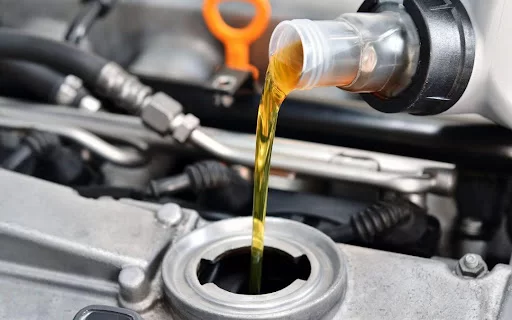
5 Key Signs Your Car Needs an Oil Change: Brampton Driver’s Guide
Maintaining your vehicle’s health is essential for safe and reliable driving in Brampton. Among the many maintenance tasks, regular oil changes stand out as a fundamental aspect of car care. Engine oil lubricates moving parts, reduces friction, and helps keep your engine running smoothly. However, over time, oil becomes less effective, leading to potential engine damage and decreased performance. In this comprehensive guide, we’ll delve into five key signs that indicate your car needs an Oil change Brampton, offering valuable insights, expert tips, and in-depth analysis to help Brampton drivers keep their vehicles in optimal condition.
- Dashboard Warning Light:
Modern vehicles are equipped with sophisticated onboard diagnostics systems that monitor various aspects of your car’s performance, including oil levels and pressure. When the system detects low oil pressure or the need for an oil change, it triggers a warning light on the dashboard. This indicator typically resembles an oil can or reads “Check Oil” or “Oil Change.” When you see this warning light illuminate, it’s crucial to take action promptly. Ignoring it could lead to severe engine damage and costly repairs. Therefore, if you notice the oil change warning light, it’s time to schedule an oil change at your earliest convenience.
- Dark or Dirty Oil:
Checking your car’s oil regularly is a simple yet effective way to monitor its condition. To do this, locate the oil dipstick under the hood, pull it out, and wipe it clean. Then, reinsert the dipstick fully and pull it out again to examine the oil level and quality. Fresh engine oil is typically translucent and amber or light brown in colour. However, as it ages and accumulates dirt, debris, and engine particles, it darkens and becomes dirty. If you notice that the oil on the dipstick appears dark, gritty, or sludgy, it’s a clear indication that an oil change is overdue. By staying proactive and checking your oil regularly, you can catch potential issues early and address them before they escalate.
- Engine Noise or Knocking Sounds:
Your car’s engine should operate smoothly and quietly under normal conditions. However, if you hear unusual engine noise or knocking sounds, it could signal trouble. Engine noise may indicate inadequate lubrication, which can occur when oil levels are low or when the oil is old and degraded. Without proper lubrication, metal parts within the engine can rub against each other, leading to increased friction and potential damage. If you notice any unfamiliar sounds emanating from your engine, it’s essential to have it inspected by a qualified mechanic. In many cases, an oil change may be necessary to resolve the issue and restore proper lubrication to the engine.
- Decreased Fuel Efficiency:
Monitoring your car’s fuel efficiency can provide valuable insights into its overall health and performance. Sudden decreases in fuel economy may indicate underlying issues, including the need for an oil change. Engine oil plays a crucial role in reducing friction and maximizing engine efficiency. However, as oil ages and becomes less effective, it can cause the engine to work harder and consume more fuel than usual. If you notice that your car’s fuel economy has declined unexpectedly, it’s worth considering whether a Valvoline oil change may be necessary. By addressing this issue promptly, you can improve engine performance and efficiency, ultimately saving money on fuel costs in the long run.
- Exhaust Smoke or Burning Smell:
Unusual smoke or odours emanating from your car’s engine or exhaust system can be cause for concern. If you notice smoke or a burning smell, it may indicate oil-related issues that require attention. Low oil levels or oil leaks can result in oil coming into contact with hot engine components, leading to smoke or burning odours. In some cases, burning oil can produce a blueish smoke that is visible from the exhaust pipe. Additionally, leaking oil can drip onto the exhaust system, causing it to burn and produce a distinctive odour. If you observe any smoke or unusual smells coming from your car, it’s essential to have it inspected by a qualified mechanic promptly. Addressing oil-related issues early can help prevent further damage and ensure your car remains safe and reliable on the road.
Conclusion:
Regular oil changes are essential for maintaining your car’s engine health and ensuring optimal performance and efficiency. By paying attention to the key signs outlined in this guide, Brampton drivers can stay ahead of their vehicle’s maintenance needs and avoid potential engine damage or breakdowns. Whether it’s responding to dashboard warning lights, checking the condition of engine oil, monitoring engine noise, fuel efficiency, or addressing unusual exhaust smoke or smells, staying vigilant and proactive about oil changes is crucial for keeping your car running smoothly on Brampton’s roads. Remember, scheduling regular oil changes at Valvoline Express Care is an investment in the long-term health and longevity of your vehicle, so don’t delay – keep your car’s engine running smoothly with timely oil changes.

